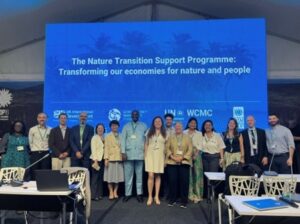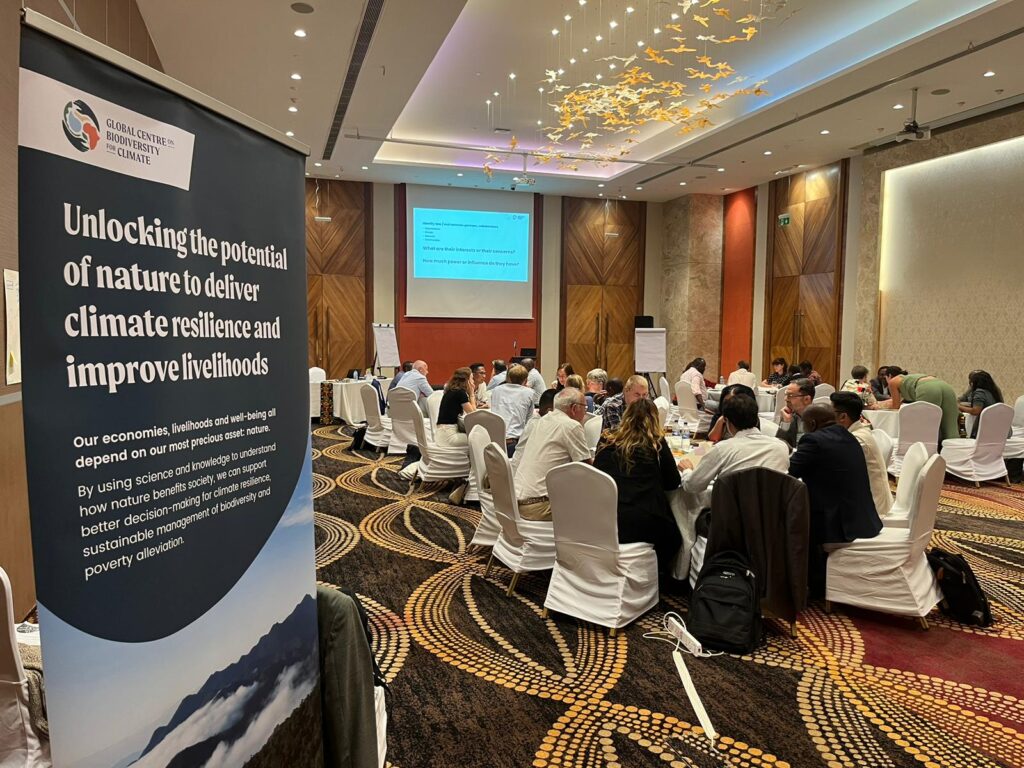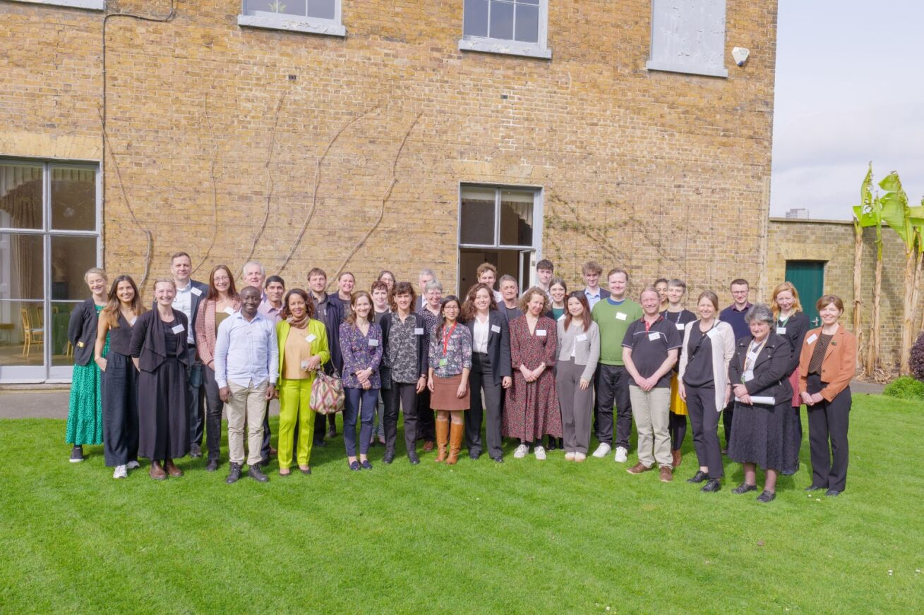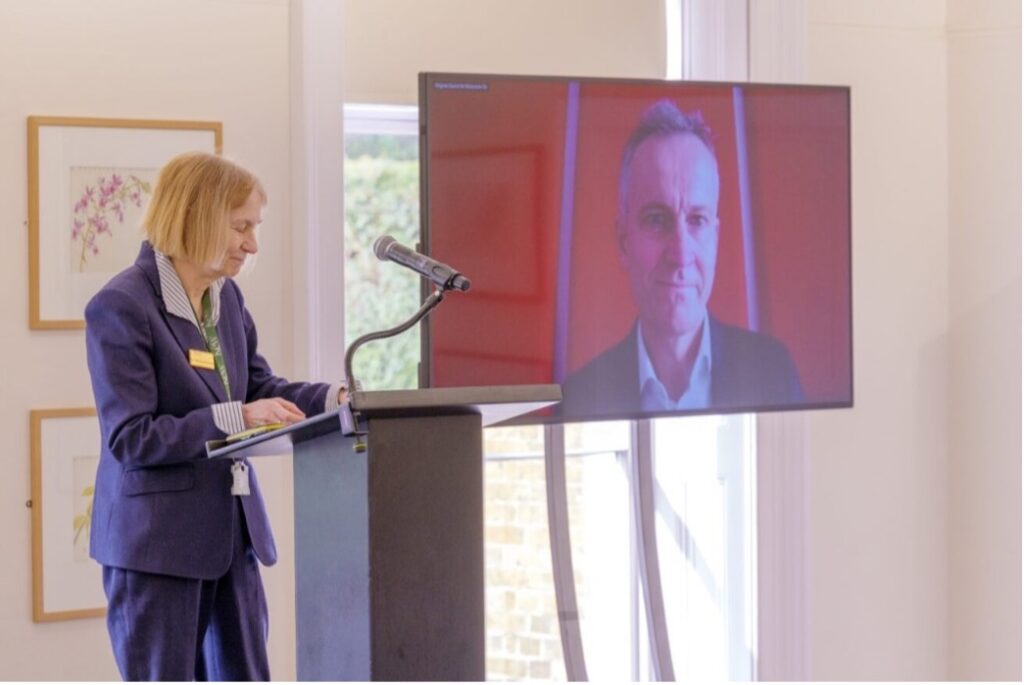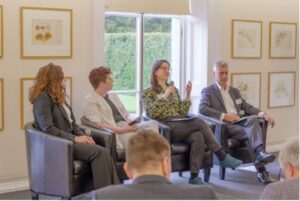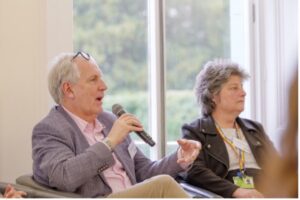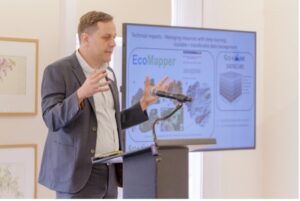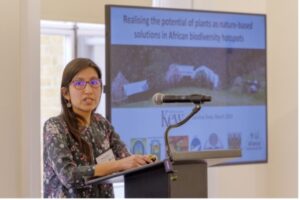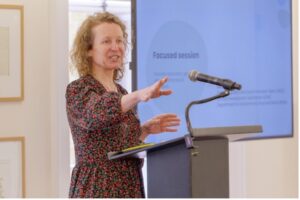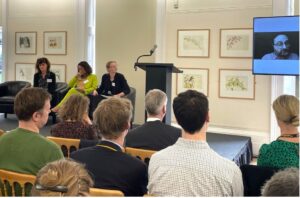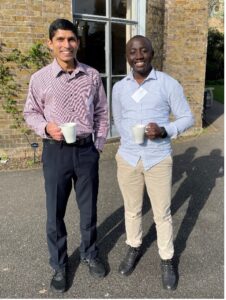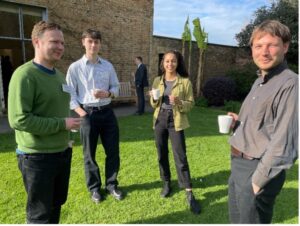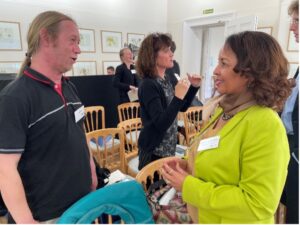Research Grant Competition 2 (RGC2): The GCBC awards £13.4 million in UK ODA grants for research to find nature-based solutions to climate change and poverty reduction
RGC2 awards 18 new project grants worth £13.4 million based on the theme: “Driving innovation in how biodiversity can support climate resilience and sustainable livelihoods through practice and governance”.
Initial concept note applications for the second GCBC research grant competition (RGC2) numbered 507 from lead delivery partners in 60 UK-ODA eligible countries. This response more than trebled the 155 applications submitted for the first round of grants in 2023. From the initial concept notes, 56 applications were selected to submit full proposals.
Grant awards were made using several criteria, including applications’ contribution to the context of the RGC2 theme. These involved assessing applicants’ understanding of how addressing evidence gaps in the potential of nature-based solutions using less utilised species (plants, animals, insects, fungi, trees etc.) can contribute to:
- improving poor livelihoods through more resilience to climate change;
- meeting resource or service demands; and
- protecting and conserving traditional knowledge and biodiversity.
Filling these evidence gaps is critical to finding innovative approaches to guide practice and governance.
Climate change, biodiversity loss and poverty are three of the most pressing challenges facing the world today and are fundamentally inter-linked. Climate change, driven by human activity, is increasingly and negatively affecting people and the natural environment. Biodiversity loss, which also results from human activity, is causing degraded landscapes and soil and increasing food insecurity. This exacerbates climate risk by reducing the resilience of natural and managed ecosystems. Unfortunately, those living in poverty are often the most vulnerable and the least able to respond to the impacts of climate change and biodiversity loss.
By working in partnership with scientists, research institutions and practitioners around the world, the GCBC seeks to develop innovative research and scalable approaches to the conservation and sustainable use of biodiversity. This will have an impact on ecosystem resilience to climate change, halting and reversing biodiversity loss, contributing to poverty alleviation and helping countries to achieve a nature-positive future. The GCBC is funded by the UK’s Department for Environment, Food and Rural Affairs working in partnership with DAI as the Fund Manager Lead and Royal Botanic Gardens, Kew as the Strategic Science Lead.
The 18 projects awarded under RGC2 will be implemented in 16 UK ODA-eligible countries in the Global South; seven countries from Latin America (including Central America) and the Caribbean (Brazil; Colombia; Ecuador; Dominican Republic; Guatemala; Panama; Peru); six from Sub-Saharan Africa (Democratic Republic of Congo; Ethiopia; Ghana; Kenya; Tanzania; Republic of Congo); and three from South East Asia and the Pacific (Cambodia; Indonesia; Vietnam).
Eleven of the RGC2 projects cover broad thematic areas: Agroforestry; Community led approaches; Integrated land / water management; and Forest restoration. Seven of the projects cover more uniquely focused research areas: Seagrass restoration; Carbon markets; Biodiverse seed bank; Mangrove restoration; Peatlands; Land use (landscape level); and Underutilised species for soil restoration.
“This new round of 18 diverse and innovative projects represents a consolidation of the ‘Global Centre on Biodiversity for Climate’ as Defra’s flagship ODA R&D programme. These new projects will continue GCBC’s growing reputation for delivery of high-quality evidence about the effective and sustainable use of biodiversity for climate resilience and to improve livelihoods.” said Professor Gideon Henderson, Chief Scientific Adviser, UK Department for Environment, Food and Rural Affairs.
“As fund management lead, DAI is delighted to continue our relationship with Defra and especially to welcome the successful applicants who are joining the GCBC’s project portfolio for the next phase of the programme’s development. Through this project round, we will continue to support scientists, academics and research institutions working to build stronger capacity, increase collaboration, deliver high-impact projects and share learning on the biodiversity-climate-livelihoods nexus that will have an impact on ecosystem resilience to climate change, halting and reversing biodiversity loss and contributing to poverty alleviation,” said Luqman Ahmad, Senior Vice President, DAI.
“As strategic science lead, the Royal Botanic Gardens, Kew also welcomes the new projects to the growing portfolio. The new evidence, data and knowledge across pressures/drivers, solutions and enablers for the different themes of the grant competitions will support the adoption of systems approaches in tackling the nexus of climate, biodiversity and livelihoods. By understanding and managing the complex interactions between science, society and the multiple interacting systems through temporal and spatial scales it will be possible to recommend solutions – orientated approaches for transformative change across different sectors and regions,” said Professor Monique Simmonds, Deputy Director, Science (Partnerships), The Royal Botanic Gardens, Kew.
The 18 Projects funded by RGC2:
Assessing Carbon Credits as a Sustainable Funding Mechanism for Participatory Forest Management in Tanzania – Lead Grantee: Sokoine University of Agriculture, Tanzania (Country: Tanzania)
Biodiversity for climate and social resilience: Empowerment of coastal communities in sustainable production practices in Ecuador – Lead Grantee: Escuela Superior Politecnica del Litoral – ESPOL, Ecuador (Country: Ecuador)
Biodiversity science in support of community-led conservation of threatened local forests in Tompotika, Central Sulawesi: Protecting biodiversity, ecosystem services and climate resilient local livelihoods – Lead Grantee: Missouri Botanical Garden (MBG), USA (Country: Indonesia)
Biodiversity potential for resilient livelihoods in the Lower Omo, Ethiopia – Lead Grantee: University of Leeds, UK (Country: Ethiopia)
BREL-Borneo: Benefits of Biodiverse Restoration for Ecosystems and Livelihoods in Borneo – Lead Grantee: Royal Botanic Garden Edinburgh, UK (Country: Indonesia)
Cataloguing and Rating of Opportunities for Side-lined Species in Restoration of Agriculturally Degraded Soils in Sub-Saharan Africa (CROSSROADS-SSA) – Lead Grantee: University of Aberdeen, UK (Country: Ethiopia)
Creation of an Intercultural biodiverse Seed Bank with the indigenous “Resguardo Puerto Naranjo” for enhancing restoration and conservation efforts in degraded areas in the Colombian Amazon – Lead Grantee: Fundación Tropenbos, Colombia (Country: Colombia)
EMBRACE: Engaging Local Communities in Minor Crop Utilisation for Biodiversity Conservation and Livelihood Enrichment – Lead Grantee: Council for Scientific and Industrial Research-Crops Research Institute (CSIR-CRI), Ghana (Countries: Ghana and Kenya)
Enabling large-scale and climate-resilient forest restoration in the Eastern Amazon – Lead Grantee: Lancaster University, UK (Country: Brazil)
Exploring sustainable land use pathways for ecosystems, food security and poverty alleviation: opportunities for Indonesia’s food estate programme – Lead Grantee: University of Sussex, UK (Country: Indonesia)
Forest restoration on Indigenous lands: Restoring biodiversity for multiple ecosystem services, community resilience and financial sustainability through locally informed strategies and incentives – Lead Grantee: Smithsonian Tropical Research Institute, Panama (Country: Panama)
Integrated Land and Water Management of the Greater Amanzule Wetland System – Lead Grantee: University of Education, Winneba, Ghana (Country: Ghana)
NATIVE: Sustainable Riverscape Management for Resilient Riverine Communities – Lead Grantee: University of Lincoln, UK (Countries: Colombia and Dominican Republic)
Nature based solutions for climate resilience of local and Indigenous communities in Guatemala – Lead Grantee: University of Greenwich, UK (Country: Guatemala)
Realising the potential of plant bioresources as new economic opportunities for the Ecuadorian Amazon: developing climate resilient sustainable bioindustry – Lead Grantee: Universidad Tecnica Particular de Loja, Ecuador (Country: Ecuador)
Recognising and rewarding the contribution of Indigenous knowledge for the sustainable management of biodiversity – Lead Grantee: Wildlife Conservation Society (WCS), USA (Country: Cambodia)
TRIALS: Translating Research into Action for Livelihoods and Seagrass: Establishing scientific foundation for seagrass restoration and blue carbon potential, with sustainable livelihood development for coastal communities in Central Vietnam – Lead Grantee: WWF-UK, UK (Country: Vietnam)
Using biodiversity to support climate resilient livelihoods in intact tropical peatlands – Lead Grantee: Royal Botanic Gardens, Kew, UK (Countries: Peru, the Republic of Congo and the Democratic Republic of Congo)
Photo Credit (Detail): Laitche




